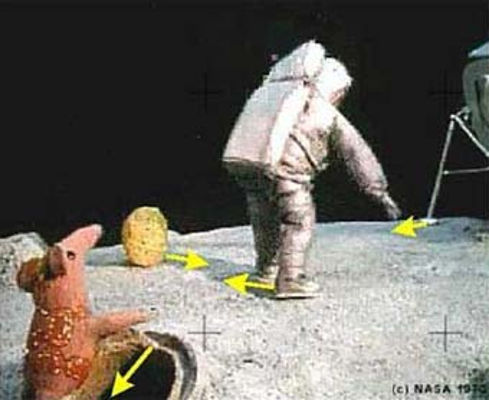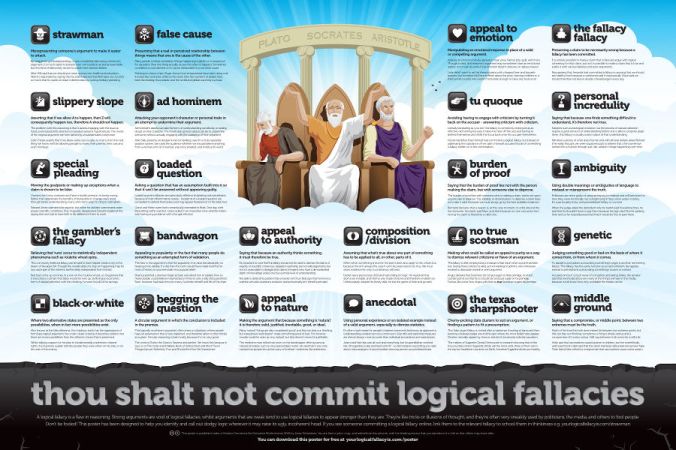It’s pretty clear to me that if anyone’s qualified to propose a radical reform of school curricula, it’s me. Sure, I may not have actually worked within the education system, but I’ve got over a decade’s experience in the NHS – and that’s public sector so it’s bound to be pretty much the same. I’ve never been a teacher per se, but my best mate is so that has to count. It’s true that the national curriculum isn’t something I’ve studied at length, but I’ve spent at least twenty minutes googling it, and I’m a fast learner. I can also hum the theme tune to Grange Hill at the drop of a hat. Anyhow, we could go back and forth on who’s qualified to give their opinion on what until the cows come home; the past is the past and the fact is, that it’s fallen to me to write a blog post that a handful of people might skim over, proposing a radical overhaul of what we teach our young minds.

A school, yesterday. Damn you, image search.
Image: iwishmynamewasmarsha – CC BY-NC 2.0
I hope you’re sitting down, because I’m about to say something radical: The World Has Changed.
I’ll give you a moment to take a breath and try to get your head around that.
That’s alright; take your time.
Okay? Good.
When I was studying, at the turn of the century, a lot of what we learned was essentially fact-based. A lot of it was stuff that I’ve almost consciously turfed out of my brain since, because thanks to Jimmy Wales I now carry the greatest compilation of knowledge in the history of mankind in my pocket. Although it’s useful to know the principles of photosynthesis, I really don’t need to cart the details of a chloroplast’s innards around in my head. If it comes up in conversation with the vicar, I’ll just have to rely on my ability to deftly steer the conversation onto Spurs’ FA Cup winning side of ’91 instead. If he’s really insistent on swapping our favourite adenosine triphosphate anecdotes I’ll nip to the bathroom with my phone. And yes, I googled photosynthesis to come up with that.
At the same time, the course of our nation is being dictated by people who manipulate public opinion – and therefore votes – at every turn, in part by taking advantage of an overly trusting electorate and in part by the overt use of logical fallacies. If there are things we could teach kids to better equip them to face such challenges, it wouldn’t hurt to be giving them a bit of a higher priority. Instead of, say, being able to identify an intransitive verb on the spot. I’ve got a 2:1 degree in English Literature, and I still haven’t got the foggiest. I’d not say it’s significantly affected my opportunities.
The most obvious recent example of misplaced trust is the subconscious belief that you wouldn’t be allowed to put something on the side of a bus if it was untrue. I’ve no simple solution to this type of tendency, other than for schools to generally encourage children to question anything that’s presented to them as a prima facie fact, to demand explanations and answers, and to conduct their own research.
This is a delicate balance though; there’s no benefit in fostering a nation of outright cynics, any more than one of tin-foil hat wearing loonspuds with a fervent conviction that the moon landings were filmed at Pinewood.

A leaked undoctored NASA photograph
Image: via Pigeon’s Nest – Public Domain
The difficulty of finding that sweet spot of healthy scepticism is illustrated neatly by the long-running MMR-autism debacle. I refuse to refer to it as a ‘debate’, because it’s not. The MMR vaccine does not and never has caused autism. Despite this, the ‘anti-vaxxer’ movement steams on apace, particularly in the US.
The initial traction for this sorry saga came from a fraudulent claim made by Doctor Andrew Wakefield. Had he not held, at the time, the title of ‘Doctor’, it’s unlikely that much would have come of it. Instead though, many bought the whole thing as at least vaguely plausible – including The Lancet it seems. Whilst it’s remarkable that the peer-review process failed so miserably in this instance, it remains the best way anyone’s so far come up with for sorting pearls from poppycock. In this context, it’s more pertinent to note that if Wakefield wasn’t writing from a position of accreditation, his con would never have reached that far in the first place. His deceit was assumed to be worthy of consideration because of the letters after his name, even by those who really should have known better.
A little more scepticism would not have gone amiss.
You’d think though, that after he’d been struck off and his research thoroughly discredited that would have been the end of it.
Oh no, not in the least. Instead the narrative dropped by those taken in by his credentials was hastily picked up by those that believe that Lizzy Saxe-Coburg is a shapeshifting lizard-person.
The conspiraloon brigade seized on it with glee, proudly trumpeting that Wakefield was the victim of a smear campaign by the vaccine manufacturers. It was added to the list along with chemtrails, Obama’s Kenyan kindergarten years, and a belief that the earth is a giant frisbee.
MIND. BLOWN.
Yeah… probably best not to encourage too much scepticism I guess, if that’s the result.
Nonetheless, the current situation isn’t actually a hell of a lot better, with a populace so easily gulled for lack of a bit of applied logic. The contentions put to people are often no less brimming with balderdash than the video above, they’re just presented more artfully. Often by someone in a suit who speaks nicely, which alone adds an astounding amount of credibility in the eyes of many.
To be clear, this is nothing whatsoever to do with intelligence, or even the level of education achieved. It’s only about the fostering of a very specific set of analytical tools, with which an argument can be dissected and objectively appraised. It’s about being aware of the use of logical fallacies, being on guard for them, and possessing enough self-awareness to be able to check yourself and realise when you’ve been duped – which we all are occasionally, no matter how alert.
There’s much more to this than simply memorising a set of bullet points, but I’ll admit to being quite fond of the logical fallacies images that one can find on that there interweb.

Image: Jesse Richardson – CC BY-ND
Posters like this should be printed out by every teacher across the land, no matter what their discipline, and plastered across every inch of their classroom walls.
Politicians in particular – but certainly not exclusively – make good use of the general public’s inability to spot these fallacies. Most people are instead reliant to a greater or lesser degree upon journalists, and a mysterious cadre of experts, to call them for what they are. That in turn, means that people are at the mercy of whatever agendas or editorial lines that may be channelled through those mediators.
The immediate problem is that to make our educational curricula laser-focused on logical analysis of this sort simply wouldn’t be in the interests of those with the power to make that decision. Even the most well-intentioned politicians use their ability to manipulate, not just the evil ones with the white cats and the secret mountain lairs. That really isn’t relevant though. It doesn’t matter if the motivation is to enslave the populace of Basingstoke or to build a hospital for poorly kittens – it remains deceitful manipulation, and one which we should aspire to eliminate no matter the ends to which it’s being utilised.
But as with our Parliament’s refusal to move away from the absurdly non-representative First Past The Post electoral system – the 2011 ‘proportional representation’ referendum only offered up AV as a substitute, which is equally useless – lamb aren’t in the habit of suggesting koftas for dinner. A fully engaged electorate, who could see when these fallacies are being employed, would likely start asking awkward questions all over the place. Irate objections to the allocation of resources and the distribution of wealth could become commonplace, rather than the preserve of an easily dismissed handful of excitable types in Guy Fawkes masks. Competing with the hoi polloi on a level playing field is the last thing anyone in Westminster wants, no matter their motives or the colour of their rosette.
Dealing with people who think for themselves and question everything is difficult. It makes it much harder for someone to push their own agenda, I get it. No wonder government discourages it. Explaining things and teaching reasoning is tiresome. Parenting is a microcosm. I want my children to be independent free thinkers , but damnit sometimes I just want them to accept my lie that our new apartment only lets us have two pets rather than asking to see the lease. The difference there I guess is it’s hard to find a politician who puts the welfare of the populace above their own agenda (which I hope is what most parents do).
LikeLiked by 1 person